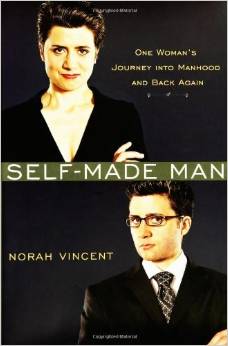Content
In order to effectively pose as a man, Vincent acquired a buzz cut and flattened her chest using a small sports bra. She also hired a makeup artist to fake a five o'clock shadow and trained for months to imitate a deeper male voice. She changed her diet and exercise regimen to "bulk up" with more upper-body muscle.
She describes her experiences as a man in strip clubs, on dates, and as part of a man's support group. [1] [2] [3]
She joined a men's bowling team, where she says, "[the men] just took me in ... no questions asked." She eventually became friends with them, even coming along to strip clubs and dating presumably straight women who had no idea of her true gender. She later revealed her true identity to the men, who "took it well". [4]
She wrote about how the only time she had ever been considered excessively feminine was during her stint as a man: her alter ego, Ned, was assumed to be gay on several occasions. Features of herself that had before been seen as butch were seen as oddly effeminate. Vincent stated that, after the experiment, she gained more sympathy for the male condition: "Men are suffering. They have different problems than women have, but they don't have it better. They need our sympathy, they need our love, and they need each other more than anything else. They need to be together." [2] [3]
This page is based on this
Wikipedia article Text is available under the
CC BY-SA 4.0 license; additional terms may apply.
Images, videos and audio are available under their respective licenses.
